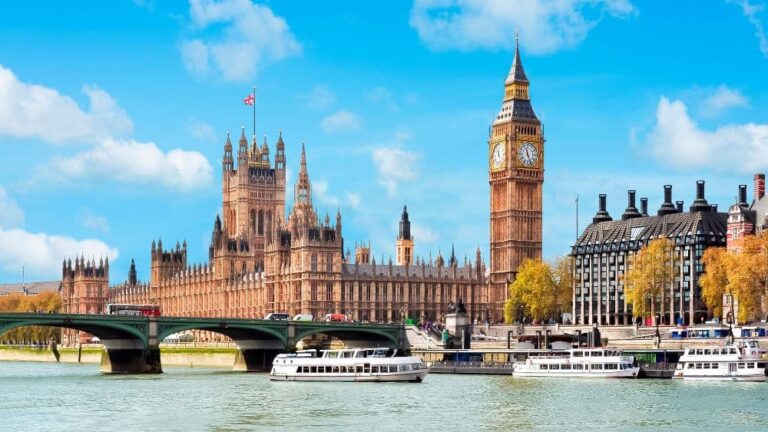
Carried interest and non-domiciled taxation
Significant changes impacting the taxation of ‘carried interest’ and non-domiciled individuals were announced by Chancellor Rachel Reeves during today’s Autumn Budget. In this blog we provide a high-level overview of these announcements.
Carried interest
Carried interest is defined by the Government as a performance-related award received by fund managers.
The two current rates of capital gains tax (CGT) that apply to qualifying ‘carried interest’ of 18% and 28% will both be increased to 32%, effective from 6 April 2025. In addition, from April 2026 a simplification of the existing rules has been proposed.
From April 2026, we understand that the intention is for carried interest to be subject to income tax and national insurance (NI), albeit with a modification in view of its unique characteristics. It is suggested that 72.5% of proceeds will be subject to income tax. Accordingly, under current rates this would give an effective income tax rate of approximately 32% for additional rate taxpayers from April 2026, with NI due in addition.
In advance of the Autumn Budget, HM Treasury announced a call for evidence in which we provided comments. A further consultation process has been announced and will run until 31 January 2025. We will contribute our further comments to HM Treasury in due course.
Non-domiciled tax reforms
In line with earlier announcements, the Government confirmed its intention to abolish the remittance basis of taxation for UK tax resident but non-domiciled individuals (UKRNDs) from 6 April 2025 and replace it with a residence-based regime.
In addition, the Government announced that domicile is to be removed as a connecting factor to UK inheritance tax (IHT) from 6 April 2025 and modifications have been suggested in respect of the UK tax status of overseas trusts.
The Government announced that further guidance will be published in due course in advance of April 2025. Furthermore, an opportunity has been provided for technical commentary to be submitted in response to announcements and draft legislation. We will contribute our detailed technical comments in due course.
Inheritance tax
The current rules apply domicile as a connecting factor to IHT. This will change from April 2025, whereby residence should be the determining factor of whether foreign assets are subject to IHT. The test will be whether the relevant individual has been resident in the UK for 10 of the 20 tax years preceding a chargeable event.
New foreign income and gains regime – IT and CGT
A new foreign income and gains (FIG) regime will be introduced from April 2025. Qualifying individuals will be eligible in their first four years of UK tax residence following a period of 10 consecutive years of non-residence. The statutory residence test will determine residence for this purpose.
An individual’s domicile status will not be relevant for this test and therefore UK domiciled and long-term non-resident expats returning to the UK should qualify for the new regime.
The FIG regime will apply full relief on qualifying foreign income and gains in the four-year period. A claim will need to be made in the relevant individual’s self-assessment tax return to quantify the relevant FIG, and no later than 31 January in the second tax year following the relevant year.
A claim can be made on a year-by-year basis and does not need to be made for every year of the four-year period. Making the claim will cause the loss of the personal allowance and capital gains annual exemption for the relevant tax year.
In addition, a form of rebasing to 5 April 2017 of foreign assets held personally can apply for former remittance basis users where certain conditions are met.
Temporary repatriation facility
Existing UKRNDs who have previously claimed the remittance basis with pre-April 2025 unremitted foreign income and gains will be able to remit them to the UK at reduced rates of tax for a three-year period. In 2025/26 and 2026/27, the rate of tax will be 12%, followed by 15% in 2027/28. An election will need to be made to designate the relevant amount and accounts.
The temporary repatriation facility may also be claimed by beneficiaries of offshore trusts that receive capital benefits in the three-year period that are matched with pre-April 2025 trust foreign income and gains.
Overseas workdays relief
The current rules in respect of overseas workdays relief (OWR) are to be reformed. From 6 April 2025, eligibility for OWR will primarily be determined on whether the individual meets the terms of the FIG regime. OWR will provide relief from income tax for a four-year period on a just and reasonable basis where employment duties are carried out overseas. The OWR relief will apply to the overseas duties even if the earnings are received or remitted to the UK.
Offshore trusts
The existing protections introduced in 2017 in respect of foreign income and gains arising within offshore settlor-interested trusts will no longer be available from April 2025. Where the FIG regime does not apply, the relevant individual will be taxed on distributions where they can be matched with the income and gains arising within the offshore trust.
It has been announced that a further consultation process will commence with a view to further reforms to the existing anti-avoidance rules impacting offshore structures. In addition to the above, any further changes are expected to be effective from April 2026.
Subject to some transitional provisions, the ‘excluded property’ status of non-UK property held within overseas trusts will not be wholly determined by the status of the trust’s settlor at the time property was added to the trust. From April 2025, we understand that foreign property within overseas trusts will continue to not be subject to IHT where at the relevant time, the settlor is not a long-term UK tax resident. Accordingly, there are due to be significant changes to the IHT status of overseas trusts.
Summary
These are significant changes, announced along with substantial information and documentation released today. We are reviewing the additional paperwork in detail and will continue to contribute to the evolving landscape.
If you are or may be impacted and would like to discuss your situation, please speak to one of our specialists or your usual contact at PKF Francis Clark.
For more analysis, visit our Budget hub.












